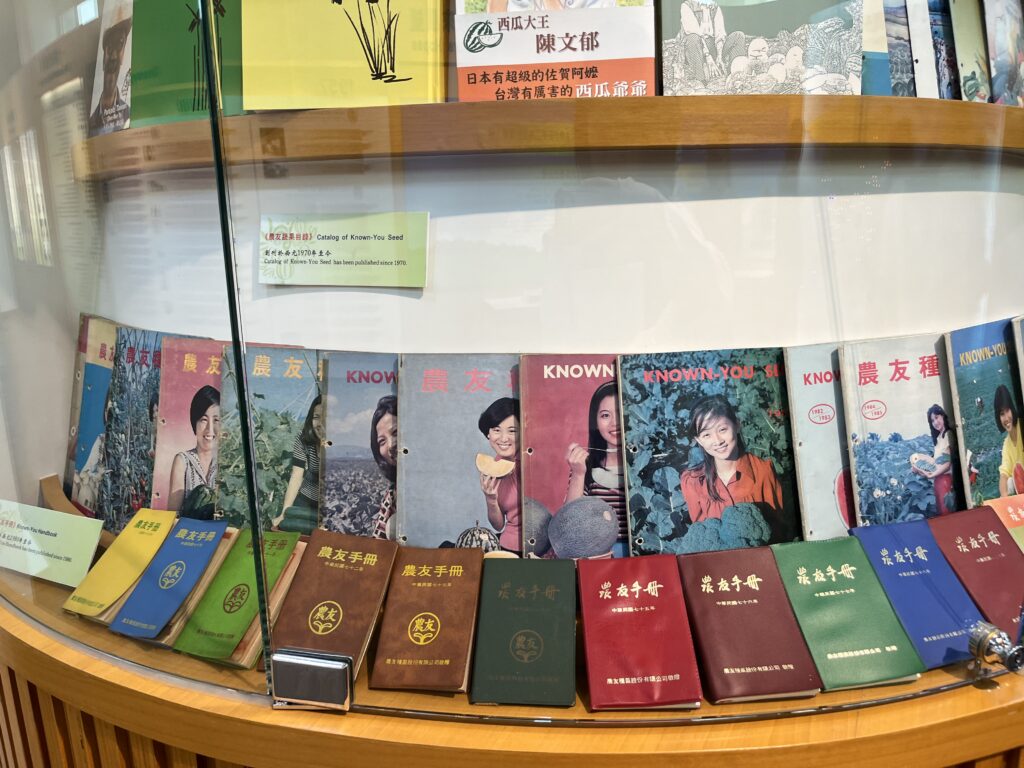Hello fellow travelers and friends! It’s nice that some of you have taken such creative liberty with these posts, it’s been really fun reading them and overall, I am genuinely having a really great time here in Taiwan with the crew 🙂
Today, we traveled from the National Pingtung University of Science and Technology to Kaohsiung City to visit the seed supplier company, Known-You Seed Co., Ltd., or “Farmer’s Friend” Seed Company in Chinese. After an entire week of visiting organic farms, small farms, and NGOs, today’s visit provided a new perspective on how the private agricultural sector operates and what its role is in relation to the public sector. My first impression was that it was a classic corporation–with a proud origin story, awards and products displayed in a gallery, and superior marketing ability. I thought it was very kind of them to offer to welcome us to visit their labs and building for our informational purpose, which shows their commitment to a greater purpose of agricultural education and transparency.

During the tour and introduction, their staff gave us a thorough overview of the molecular breeding and cell biology that they were using in order to introduce and cultivate the 2,500+ varieties of produce that they currently have across 150+ subsidiaries around the world. They explained how the company is mostly driven by market demand and respond to the needs of farmers and consumers. In a separate conversation, Dr. Linda explained that Known-You has about 300 employees in Taiwan and 2,000 overseas, and are #1 in Taiwan for the agricultural seed industry (especially melons).

After the presentation about the various labs and methods that they use, we began asking clarifying questions. The round of science-specific questions eventually led to a few professors and students hoping to better understand and evaluate the practices of the corporation from a more social lens. I was really curious as to how such an extensive seed company that held so much authority in their industry handled and adjusted to the different geographies, land, and growing conditions that its consumers came from. In particular, I wondered how they implemented technical farming training and provided support to farmers in developing countries. They replied to me, saying that they implement something called demo farms for seed varieties, inviting farmers to test out the product under various condittions. After selling their seeds to poorer farmers, such as in India, they teach them how to grow them in their climate- and region-specific conditions, and in some cases, also help with the marketing of those products to wholesale markets in the local country. Moreover, they explained that they were not specialized in and thus did not focus on addressing soil care and soil damage that could result from increased pesticide use from their seeds, until a problem was clearly identified. In many cases, however, this can be too late.

Overall, I found that this corporation was an important perspective to understand because it controls much of the agricultural industry in Taiwan and has influences in global developing regions that it partners with. It was a stark contrast, however, to the practices and values and sense of responsibility and environmental stewardship, when compared to the Damsui Organic Farm and Tse-Xin NGO, and even the NTU and Pingtung University farms. Profit was much more a focus and priority, and climate action seemed to be an afterthought.
-Alysa
